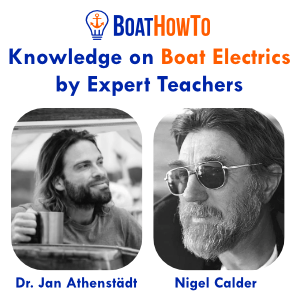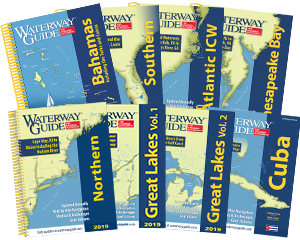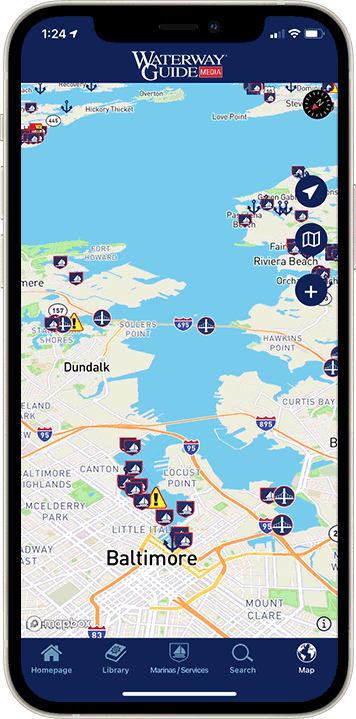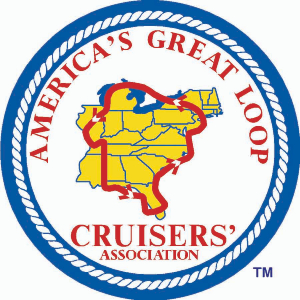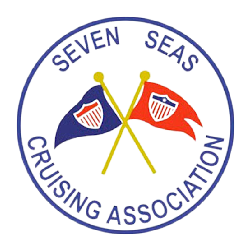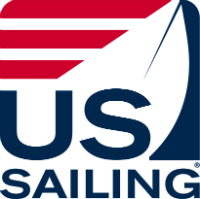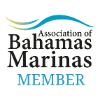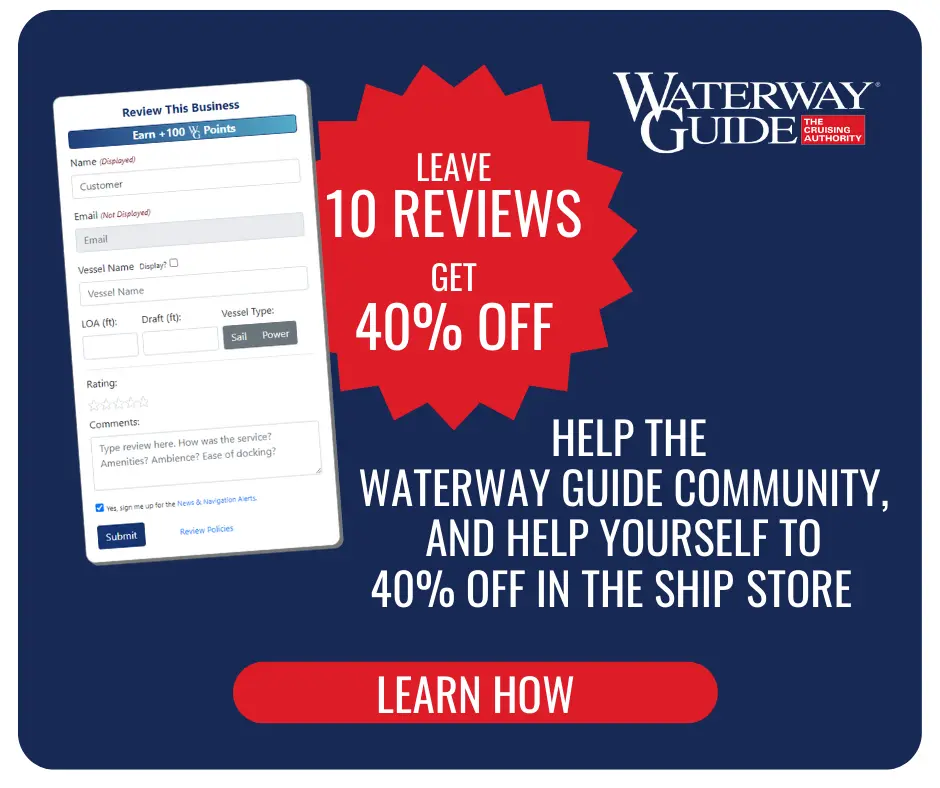
Funny how things change over time. Not too many years ago, the buzz in the marine world was a concern about "Where will the next generation of boaters come from?" As recognized by the industry, this was a valid concern. The existing boating demographic had a large percentage of established boaters that were growing older. Family boating brought many into the fold, but with so much in life competing for time and attention, the number of new boaters was decreasing. This of course got industry attention and concern (let's talk revenue).
Times change; problems change. One million. Florida now has more than one million registered boats (along with many more that aren't). Nationwide the number of registered recreational boats is over 11,000,000. During the pandemic years, there was a noticeable jump in boating activity and new boat sales alone rose by over 10%. Boat sales across the spectrum skyrocketed as people adjusted to pandemic living. What could be a better coping mechanism: fresh air, away from groups of strangers, sunshine, wind-in-your-face, exploration, and adventure, etc.
This growth isn't necessarily a problem, especially if you're in the marine business. Boat sales, marine gear, dockage, both long term and transient, maintenance services, insurance, etc. all benefited from this spike. That's not to say there weren't headaches for the industry with supply chain, inventory availability, and more demand for work than the available workforce could provide. While this saturation does present challenges, there is a directly related problem that is undeniably bad news.
Some of the people that are new to boating that have not learned the basics before taking to the water are racking up impressive statistics, but not of the good kind. For the uninitiated, there is more to operating a vessel than meets the eye. Many newcomers are finding this out the hard way and sometimes tragically.
Nationwide, the USCG counted 5,265 "Reportable Accidents" in 2020 (the year of the growth spurt). In 2022 the number dropped to 4,040. The top three causes of these accidents in both, and many other, years are: operator inattention, operator inexperience, and improper lookout.
An interesting note is that of those accidents involving fatalities in 2022, 74% occurred on boats where the operator did not receive (formal) boating safety instructions and only 14% occurred on vessels where the operator had received a nationally approved boating safety education certificate. So put it altogether and there are more boats, more inexperienced/uneducated operators, and increased opportunities for problems.
To address the leading causes of accidents, we all need to focus on not allowing ourselves to get distracted while at the helm (cell phones and on-board electronics are frequent culprits) and to maintain situational awareness (SA) of surroundings. This is not only for objects to avoid while underway, but possible avoidance maneuvers for things that may hit you.
This last, 'hit you' threat is increased from inexperienced operators as noted, or for example, from threats of excessive speed or operating under the influence. Both are high ranking causes on the top ten list.
Finally, for the inexperienced boater, take a course and get that card!
And, let's not limit training just to newbies. One more interesting stat broadens the scope for education to a different audience: "…the boat operator most likely to be involved in a boating accident is a middle-age or older male who has boating experience yet never learned the most important safety considerations by having taken boating safety course." 'Nuff said!
For a good read about how one couple diligently prepared to really take a giant step into boating without prior experience, see the article about Mike and Marjolaine below.
Outliers
Work hard, save money, buy a sailboat, retire, sell your "stuff" and begin a cruising lifestyle. This is the dream of many and it plays out for the lucky or determined. But how about putting it together when you're in your early 30's?
Mike Hachem and Marjolaine Boivin-Duval did just that. This is not the typical story of people growing up boating and getting an early jump on a cruising lifestyle. It is quite the opposite. They spent their formative years in Quebec, Canada, in a small town surrounded by mountains with a lake and knew nothing about sailing. They were neighbors who barely knew each other but connected years later as young adults. Not only were they land-locked, but they had no boating experience other than some jet skiing. With that as a background they jumped into boat ownership with their first boat: a well found 39- foot Benneteau sloop, which they named BASTA, meaning "enough".
How did all this happen? Without previous exposure to boating, what would draw a couple into a commitment of this magnitude? Both were experiencing some degree of disillusionment with their jobs and the status quo in general. "It paid the bills, but it wasn't fulfilling," offered Mike. Like many Millennials, they began to view life as being about more than just work and having things. The endless cycle of working harder and getting more stuff and working still harder lost its meaning to them. "Work to live, don't live to work" rang true to their perspective.
Mike had worked for 10 years in the oil sand fields in northern Alberta, Canada, driving massive D-11 bulldozers and the giant Cat 797 dump trucks. He was recognizing a need for more adventure than what operating the largest machines on earth could provide. He wanted to escape the rat race and do something more personally rewarding. Marjolaine worked in security in the same industry. She craved freedom.
After I learned some of their story, I asked Mike about the transition from driving mega mining machines (over one million pounds curb weight) to taking the helm of their sloop. "Being on land and being on water are two very different things. There's a lot of factors that make operating a boat a lot harder than operating these land-devouring machines, in my opinion, anyway," he says. Take wind and current for example.
Together, they knew they were ready for change, so they started looking for a means to achieve their desires. Mike was introduced to the allure of sailing through literature, and then how-to books. The idea was spawned. "If they did it, we can do it. That was our mindset," recalls Mike. Early on, they considered international backpacking, but sailing won out for several reasons. "You come back, and you don't have anything because you sold everything to go backpacking," says Marjolaine. She adds, "It keeps me secure to know that I always have my home with me, and home is wherever you drop the hook."
"I know the boat didn't just come out of thin air; we had to work for it," says Mike. He continues that they were fortunate enough to have jobs that provided the means, but they didn't want to stay on the treadmill or be like a donkey going after a carrot on a stick all their lives. They wanted to escape the rat race and do something more personally rewarding.
Quick Studies
With clear intentions, these two rookies bought a boat from a charter operation back east on Lake Champlain. A three-day checkout was provided as part of the deal. Then, they were on their own. They spent a summer living on a mooring and learning all they could about sailing, the boat, its systems, and maintenance. They relied heavily on Internet sailing resources and YouTube videos for training.
Having accumulated about five months of experience, they were ready for the next phase: going off shore. They cruised from Lake Champlain to New York, where they found a suitable experienced crewmember from Sailing and Cruising, a Facebook group. They made a passage from a meeting point in New Jersey to Cape May and Delaware Bay. The mentoring crewmember even hung with them for a few more days as they continued towards Norfolk, VA, their immediate destination.
In Norfolk, they joined a fleet of 15 cruisers heading on a 7-week voyage down the ICW to Miami with stops at many towns and cities along the way. Under the wing and watchful eye of this group, still more learning opportunities were presented.
At one of the Rally stops (Cocoa Village), I watched a crew motor their sloop towards a docked vessel with the intention of rafting alongside. The approach appeared reasonable enough and ended with the skipper deciding to do a timely go-around a come back for another pass. The next approach was more to his liking: lines were passed, fender position checked, spring and breast lines set, and mast stagger verified (to prevent any entanglement from rolling). Nicely done, I thought. Subsequently I was introduced to the crew: It was Mike and Marjolaine. "That's only the second time I've rafted-up," says Mike. I was all the more impressed when I found out they have only been boaters for seven months. The execution, decision-making, knowledge and attention to little details made them appear to be old salts.
What Plan?
What's next? Although they will jokingly say, "the plan is not to have a plan", there's more to that story. Their intention is to accumulate enough experience for Mike to get a Captain's license so they can become a professional crew couple. Their natural interests already define their roles: Mike likes piloting and navigation, while Marjolaine likes running the deck tasks, including sail trimming. She also tends to the housekeeping regime and cooking. With their warm, fun-loving personalities and serious, focused approach to vessel ops, they will have plenty of opportunities in the worlds of self-chartering, deliveries or perhaps, private yacht crewing. Since this article was written, they've done portions of the Caribbean, and places beyond, Mike's comment of "wherever the wind takes us" says it all.
Wired
One of the inspirational and educational channels for Mike was a series of YouTube videos that covers cruising (see "SV Delos Sailing"). Realizing the value of such videos towards their efforts got them thinking that there is an opportunity to supplement their living by providing sailing/cruising videos about their experiences to an underserved target audience. "The English (language) market is more than saturated in sailing videos," says Marjolaine. Mike adds, "We're thinking we could do the same thing for the French community."
Mike says he looks forward to the day someone contacts them and says they saw the videos and that it inspired them to do the same thing. Did you catch that, industry executives? These trail blazers want the satisfaction of bringing others into the fold.
With a measure of excitement, they tell me the story involving a radio conversation with another cruiser, who was a total stranger. Mike was advising of a grounding event they had experienced, and the cruiser responded, "I know, I saw the pictures on your Facebook blog." It was their first acknowledged follower. So, an unpleasant "I-learned-about–boating–from-that" incident became more than a learning opportunity for our intrepid couple. It became a sharing/teaching opportunity as well, and they liked it.
Damn the Torpedoes, All Ahead Full
If the only constant is change, the answer to the question of "Where will the new boaters come from?" is answered in part by Mike and Marjolaine. They talk of having met numerous other young cruisers who are of the same ilk. In part, therein lies the future.
There's a lesson in here for the marine industry. Take a couple of outliers who leave the work force early, buy a large cruiser as an initial vessel and learn from limited formal sailing training, coupled with internet and watchful-eye passages. There's your answer to where at least some new entrants into boating will come from. They got the bug and made it happen in months, not years. Their stated passion is to now show others that they too can do it and how to do it. This is good, very good.
Brad Whitmore is a lifelong boater with some of his earliest memories being of a homemade plywood rowboat his grandfather built. As a teenager in south Florida, he spent countless hours on (and in) Biscayne Bay. His homeport is currently Cocoa Village in the Indian River Lagoon on Florida's Space Coast. Look for Brad and his wife, Bobbi, and boat dog, Cooper, aboard their Cruiser Cats Havana 38 Express power cat. Give them a shout; they'd love to hear from you!
